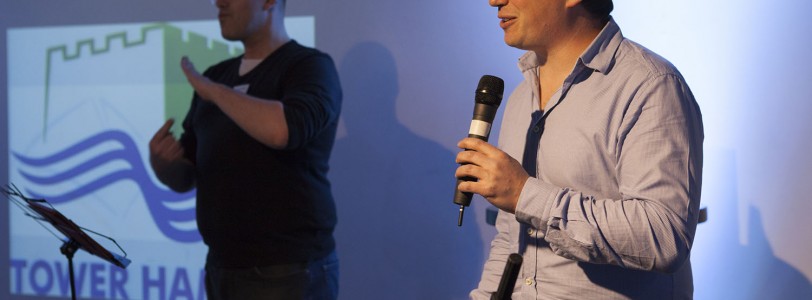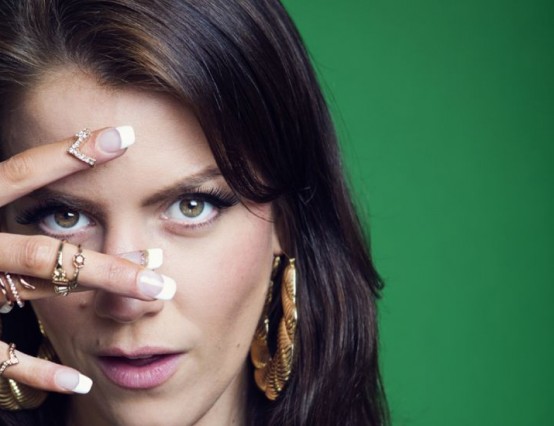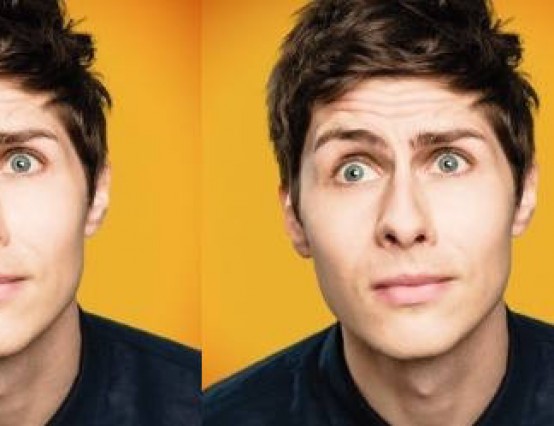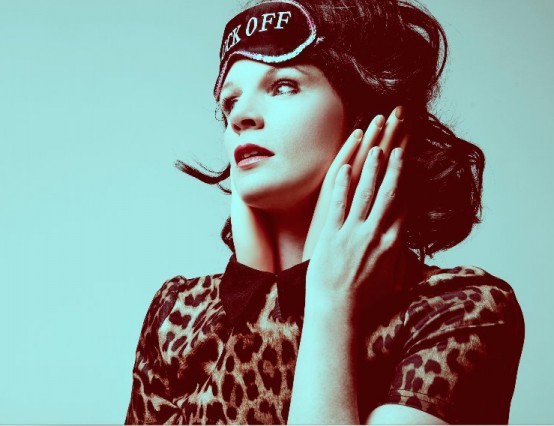What happens at Attitude is Everything?
We just want to help anywhere live music happens and make festivals as accessible for deaf and disabled people as they can be. It's about ensuring that deaf and disabled people are as independent as they choose to be at live music events. There are a lot of different ways we work, with a lot of different projects. The first is mystery shopping, which I hope you will be able to help us with as we need to find more! Mystery shoppers are just that. They're deaf and disabled people who go to venues and they report back to us. It is massive in how it guides what we do with organisations. We also have our charter of best practise, and there are 108 venues and festivals that have signed up. That is the main tool that we use to allow places to be as successful as they can. That is set at three levels, bronze, silver and gold. We then have things like Club Attitude which is our own club event that we put on once a year and we will put in as much access as we are able to, normally a small scale venue (around 1000). For our last one we had sign language interpreting, we had captioning and we live streamed it. That was a venue with 400 capacity but because of the live streaming we were able to have an extra 1200 watching it live. There's also our Campaign Research Manager who is doing some project work looking at relaxed performances and how they could be pushed forwards and expanding on the concept of what a relaxed performance actually is. And we have our festival volunteering project, where we look for deaf and disabled people who want to volunteer with us at festivals. We have places at Glastonbury, Latitude, Leeds and Reading.
When did you set things up?
The organisation has been running for fifteen years, it was our anniversary in May of this year. We started as a little tiny project. Our CEO started it back in 2000, as she was asking questions about why the music industry wasn't taking their obligations under the Disability Discrimination Act as it was then, seriously. The Arts Council gave her a little bit of money to get started - saying, that's a good question, go and find out! They then gave her a little bit more funding for the first year, and fourteen years after that we are still going strong. We were a very small project until 2008 and at that point we became a charity. We had three people then, we're now a team of six, we're still a very small organisation for what we do. We work nationally in all corners of the UK. We will work with anyone and everyone that is putting on live music. We are very lucky that we have great support from the industry, so festival-wise we have Glastonbury, Festival Republic and Ground Control who are all very supportive of what we do. A lot of the smaller festivals too, such as an umbrella organisation called AIF. With venues again we are very lucky to have great support. Most of the NAA that covers the really big venues in the country have signed up to our charter of best practice. Also the medium scale - the Roundhouses and Nottingham Concert Halls and all of the AMG Academy Music Group venues which run the O2 Academies across the UK have signed up. Again right the way down to little tiny venues like Hartlepool Town Theatre, and pubs like the Half Moon in Putney.
Do you think things have improved in the last few years?
I think the improvements in the 15 years the organisation has been going have been monumental. That's not all due to AIE I hasten to add! The change that we've seen in how venues and festivals will communicate with us has really changed. It was good at the beginning but we had to do a lot of persuasion. The need to do that educational persuasion work has gone. Businesses understand that it makes good sense to ensure that what they do is as accessible as it can be. They also understand that we are a friend to the music industry. It's what we've always set out to be. There are a lot of organisations out there that - quite rightly - point fingers and say "look, this needs to be done better" and it's great that they're there. But we have always been the friend. Part of that is talking directly to the venue about possible changes, rather than shouting about it. It's about identifying and giving opportunities for change. We are always going to work to best practise, but the road you take might also bring up a whole load of alternatives. It might be that a venue has steps to get into the front door. If it's a small venue then it might cost £40,000 to put a ramp in place however they have an alternative entrance on level access to the main hall. So we might say, ok £40,000 to build a ramp that's great, let's work on that in the long term, in the short term what are the processes and training that you can put in place. Perhaps that isn't the nicest entrance in the world, it might be going in through a backstage entrance, so it might not be the cleanest, there might be some bins and such like, but it might only cost a few hundred pounds to put some fencing around the bins. Then ensuring that the cleaning staff are getting out there. All of these things mixed with policies, training might mean that you don't get exactly the same journey that non disabled customers might take, but for that venue they've done everything they can to make it as good as it can be.
How are venues different from large festivals? Are there things that might come up at festivals that you just wouldn't come across in a permanent venue?
Absolutely. Festivals are in a unique position in that you can build the infrastructure for the people who are coming. If you have the processes and policies in place before the tickets go on sale then people can self identify, can inform you of their requirements and you can then as a production team look at the people who have requested access provision and work to that. You can look at alternative routes so that journeys are made as easy as possible, what is happening in the campsite, are we able to bring in a changing placement unit for people who have more complex needs? Are we ensuring we have accessible showers? The provision of access facilities can carry on and on. Glastonbury is a fantastic example of that. In the ten years that we have been working with them the options for access have just grown and grown. They now have things like shuttle buses to take people around the site, they work with Deaf Zone so there are 15 BSL interpreters on the site. They work with Mind who were onsite this year. The next thing we're hoping to see happening is captioning. We know from research we've done and music events we've put on with Club Attitude that captioning is a great addition to some events. It's something we'll be pushing in the future.
What is the biggest challenge at the moment that you're facing? Is there anything that has developed in recent years?
Again at the end of the day it's not looking at challenges, it's looking at provision. As an organisation we don't point at what we want to happen next, we talk to the venues about where we think they should be going. I don't see them as challenges, I see them as opportunities. The number of deaf and disabled people going to live events has increased year on year. If you look at the numbers that came from the government last year from the department of Culture Media and Sport, the number of ticket sales for deaf and disabled audiences going to rock and pop events between 2008-2012 grew from 13.5 to 15 of entire audience percentage. When you think that deaf and disabled people make up 20% of the UK there is still a gap, but it's grown by 280.000 tickets on a annual basis to 1.1million a year. We are three years on from that, so it's even more now.
Is this one of the best things about working for the organisation? Just seeing these things grow and improve?
I am very, very lucky in the role that I have. I really enjoy working for Attitude is Everything it's the dream job for me. I spent a lot of time working in the theatre world, I freelanced at festivals around the UK and managed to do a medium term contract at a multi sports games abroad which showed me massive eventing. This is a fantastic fit for me. I have a passion for inclusion and it has been driving in a lot of the roles that I've had.
We're you noticing access as an issue in the roles you previously held?
With Graeae Theatre Company and CanDoCo you are going where you're being paid to go and that might not be as good as you would have hoped. Especially with CanDoCo where we toured internationally. Because of the work that they do you would be asked to go into developing countries and they may well be 30, 40 years behind the act in the UK. The challenge is making that work and ensuring that your dancers are able to perform to the very best of their ability when access and provision might not be in place. Again you need a lot of expertise in what needs to be put in place quickly and easily. That's something that I've been able to push forward with and assist venues and festivals with confidence in that it might not be the perfect solution, but it might be a realistic solution for the short term or medium term.









0 Comments